Services
INDIVIDUAL, COUPLES, & FAMILIES
We offer individual, couples and family therapy. The understanding that people are built for attachment is at the heart of what we do. Many times, we need to have the family in sessions in order to help the person the most, or the family members also need some information, therapy, or support of their own.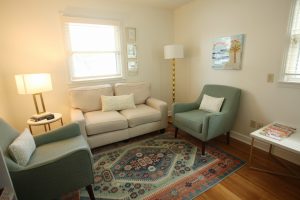
We understand that someone’s experiences significantly impact relationships. Our training allows us to help you to work on forming healthy attachment relationships with your unborn child, your partner, your siblings, or your parents.
GROUP THERAPY AND WORKSHOPS
We  combine psychoeducation, process time, experiential therapy including art yoga and equine assisted psychotherapy into each unique group. Group therapy is powerful and usually has a significant impact in an individual’s healing. Sometimes group is the first place someone feels understood.
combine psychoeducation, process time, experiential therapy including art yoga and equine assisted psychotherapy into each unique group. Group therapy is powerful and usually has a significant impact in an individual’s healing. Sometimes group is the first place someone feels understood.
NOT ALONE – a group for those suffering with teenage anxiety and depression, or post traumatic stress disorder. LGBTQ+ friendly and often a topic. Ages 15-18 most typical. Some group members go into another specialized group as well, such as the SomeBody to Love for teens group, if needed.
SOME BODY TO LOVE- a group for those suffering with an eating disorder, an unhealthy relationship with food or body image issues. Collaboration with nutrition experts is an essential part of treatment, so we work to connect you with the best if you don’t already have someone. Adolescent/teen and adult groups are separate in most cases.
RESILIENCY – a group for those wanting to feel better about their own regulation, relationships, and reasoning. Most patients do individual EMDR for trauma resolution while attending group as well. Histories include sexual assault, military sexual trauma, male sexual trauma, abandonment, grief and loss, pregnancy and infant loss, parental or partner abuse, and developmental trauma. Nobody’s trauma is less significant that anyone else’s. *Many people with eating disorders also have trauma histories, and may join the Resolution group when ED has stabilized. Some more specific trauma groups are listed below.
NEW PATHS – a group for parents/ caregivers and children who need to address attachment issues/adoption/foster care. The groundwork is laid with psychoeducation about neurosequential (bottom to top) brain development, how trauma or neglect impacts that development, and how we work to form new pathways. We then apply those concepts to experiential equine assisted psychotherapy or other activities that help parents and caregivers understand their child and learn ways to help them. Parents do work in this setting apart from and with their children in this group.
HORSES HEALING HELPERS AND HEROES – groups for health care professionals, therapists, first responders and service men and women. Those who are responsible for keeping us safe or for healing us deserve a place to do their own healing. You can schedule an intensive for your coworkers, peers or employees or join a group. Many first responders have rotating schedules and it’s very difficult to commit to a group. We can do a one time event for different shifts or can do individual work as well.
CEO’s- this is an equine assisted learning group (learning vs psychotherapy), usually one session or a package based on your group’s needs. Working in high stress environments impacts so many facets of life. Highly demanding jobs can take a toll on ones ability to manage stress, to balance work and home life, and to be effective at ones job. Equine assisted learning facilitates awareness and change with any issues that may be arising in the work place, illuminates patterns that may be occurring, and enhances leadership and stress management skills. The therapist also conducts a debrief with individuals as part of the experience, discussing what stood out, what the therapist noticed, and how the individual may be able to navigate moving forward with his/her work group in an effective manner. People sometimes continue with Equine Assisted Psychotherapy after this experience.
CONNECTIONS- our original group- integrating Brene Brown curriculum with Equine Assisted Psychotherapy- focusing on shame resilience, vulnerability, and making connection.
Intensives
 Our Intensives are unlike any other. With an Eating Disorder, Perinatal Mental Health, Trauma, and Family or Couples intensives, we build a person’s treatment schedule based on his/her/their specific needs. We combine the appropriate group, EMDR, Equine Assisted Psychotherapy, and/other individual or family therapy to create a customized program for the individual. Often times patients need their families in sessions in order to facilitate change in their system, and some work individually only. Some people need intensive EMDR, some people need Equine Assisted Psychotherapy prior to EMDR, and some need group support and normalization. We also provide nutritional counseling, supportive meals, and off site supportive grocery shopping and meal sessions. As with all of our patients, we also have psychiatry services for medication management. We get to discuss and decide what is best for each person rather than trying to fit everyone into a cookie cutter intensive. We offer weekend intensives that immerse a person in any or all of the above or you may create a longer term intensive outpatient program.
Our Intensives are unlike any other. With an Eating Disorder, Perinatal Mental Health, Trauma, and Family or Couples intensives, we build a person’s treatment schedule based on his/her/their specific needs. We combine the appropriate group, EMDR, Equine Assisted Psychotherapy, and/other individual or family therapy to create a customized program for the individual. Often times patients need their families in sessions in order to facilitate change in their system, and some work individually only. Some people need intensive EMDR, some people need Equine Assisted Psychotherapy prior to EMDR, and some need group support and normalization. We also provide nutritional counseling, supportive meals, and off site supportive grocery shopping and meal sessions. As with all of our patients, we also have psychiatry services for medication management. We get to discuss and decide what is best for each person rather than trying to fit everyone into a cookie cutter intensive. We offer weekend intensives that immerse a person in any or all of the above or you may create a longer term intensive outpatient program.
EQUINE ASSISTED PSYCHOTHERAPY
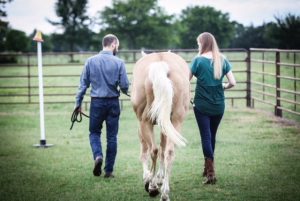 We utilize TF-EAP (trauma focused equine assisted psychotherapy) most often with our patients. This may be mounted (riding) or ground (no riding) work, depending on the needs of the patient(s).
We utilize TF-EAP (trauma focused equine assisted psychotherapy) most often with our patients. This may be mounted (riding) or ground (no riding) work, depending on the needs of the patient(s).
 Our program is a trauma informed model that utilizes our knowledge of neuroscience and the effects of trauma and chronic stress on the brain,
Our program is a trauma informed model that utilizes our knowledge of neuroscience and the effects of trauma and chronic stress on the brain,
body, relationships, and our ability to regulate. The work helps to reorganize the brain and reintegrate the connection between the brain and body. Learning in the context of a relationship with a horse allows the development of a secure connected attachment with another. Some people do EAP as an adjunct to office therapy, and some do it exclusively. One of the most rewarding experiences people have in intensives and weekly therapy programs is to combine Equine Assisted Psychotherapy with Emotionally Focused Therapy to help heal relationships. To learn more, visit Natural Lifemanship.
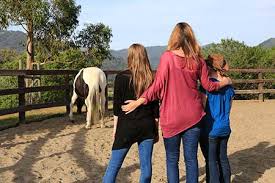
EMDR (Eye Movement Desensitization and Reprocessing)
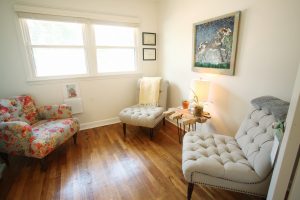 Eye Movement Desensitization and Reprocessing (EMDR) therapy is an integrative psychotherapy approach that has been extensively researched and proven effective for the treatment of trauma, however, it can be used more broadly. “EMDR is a set of standardized protocols that incorporates elements from many different treatment approaches. It can be used for panic attacks, complicated grief, dissociative disorder, disturbing memories, phobias, pain disorders, performance anxiety, stress reduction, addictions, sexual and/or physical abuse, body dysmorphic disorders, eating disorders, and personality disorders (emdria.org).
Eye Movement Desensitization and Reprocessing (EMDR) therapy is an integrative psychotherapy approach that has been extensively researched and proven effective for the treatment of trauma, however, it can be used more broadly. “EMDR is a set of standardized protocols that incorporates elements from many different treatment approaches. It can be used for panic attacks, complicated grief, dissociative disorder, disturbing memories, phobias, pain disorders, performance anxiety, stress reduction, addictions, sexual and/or physical abuse, body dysmorphic disorders, eating disorders, and personality disorders (emdria.org).
To learn more, visit emdria.
Trauma Conscious Yoga
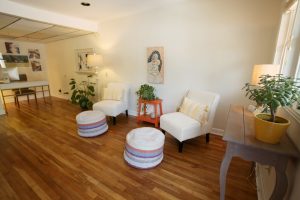 The Trauma Conscious Yoga Method (TCYM) is a unique model incorporating traditional yogic teachings along with internal family systems, EMDR (most well known for trauma resolution), and somatic experiencing models of psychotherapy. Traditional yoga classes often involve breath work, poses that can feel vulnerable or can activate a stored physical trauma, or an instructor that will place hands on a student to help adjust their alignment. This can be extremely triggering or intimidating for some people and so they avoid the experience of yoga! This TCYM experience is a gentle restorative practice combining hands off (no touching or adjusting) less triggering or vulnerable asanas (poses/movements) along with meditative practices. Many people have worked to disconnect head from body for various reasons, often for purposes of disconnecting from trauma to the body. This practice allows for integration of the entire body, while learning to trust yourself to give your body what it needs. It is also often difficult to relax for sleep or meditation without some movement first or connection to breathe. People can learn to utilize skills to help them to reduce anxiety and learn to relax. This is completely appropriate for beginners of yoga or meditation of any age or size.
The Trauma Conscious Yoga Method (TCYM) is a unique model incorporating traditional yogic teachings along with internal family systems, EMDR (most well known for trauma resolution), and somatic experiencing models of psychotherapy. Traditional yoga classes often involve breath work, poses that can feel vulnerable or can activate a stored physical trauma, or an instructor that will place hands on a student to help adjust their alignment. This can be extremely triggering or intimidating for some people and so they avoid the experience of yoga! This TCYM experience is a gentle restorative practice combining hands off (no touching or adjusting) less triggering or vulnerable asanas (poses/movements) along with meditative practices. Many people have worked to disconnect head from body for various reasons, often for purposes of disconnecting from trauma to the body. This practice allows for integration of the entire body, while learning to trust yourself to give your body what it needs. It is also often difficult to relax for sleep or meditation without some movement first or connection to breathe. People can learn to utilize skills to help them to reduce anxiety and learn to relax. This is completely appropriate for beginners of yoga or meditation of any age or size.TRAININGS & EVENTS
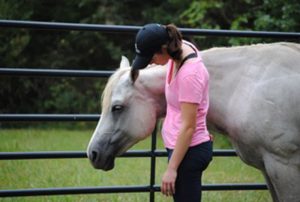
Connections Counseling will be participating in the NEDA Walk annually! Connections is proud to work with those struggling and in recovery from eating disorders. We would be honored to have you join our team and show support to those who wish to achieve and maintain RECOVERY!
Connections Counseling has hosted Natural Lifemanship trainings at our facility. Stay tuned for future training dates or visit Natural Lifemanship’s website.
From Natural Lifemanship’s Fundamentals page:
Natural Lifemanship is the science and art of connection. Founded on modern neuroscience and the principles of trauma-informed care, Natural Lifemanship promotes healing, recovery and positive development through the process of building connected relationships. The Fundamentals of NL training teaches how the brain develops and changes to accommodate survival and other needs; why relationships are so central to neurodevelopment; and how to intentionally build relationships in ways that support health and healing of self and others.
The relationship principles that we teach are demonstrated, experienced and practiced with horses at our Fundamentals of NL trainings. The training provides a solid foundation in Natural Lifemanship’s Trauma-Focused Equine Assisted Psychotherapy (TF-EAP) model for mental health and equine professionals who practice equine-assisted psychotherapy (EAP). It also provides a solid foundation for individuals who are simply interested in understanding how trauma and toxic stress affect the brain, and how relationships with self and others may be built in ways that promote health and well-being. In addition to mental health and equine professionals, the Fundamentals of NL training is often attended by teachers, parents (including foster and adoptive parents), and others.
This training is intended for:
- Mental health professionals
- Horse professionals
- Anyone with an interest in neuroscience and trauma-informed care
- Anyone with an interest in healthy relationships with self and others
- Anyone concerned with recovery
- Those with an interest in horses, horse-human partnerships, and many kinds of animal-assisted therapy
- Those who wish to pursue certification in Natural Lifemanship
Take the first step to help